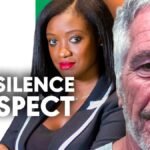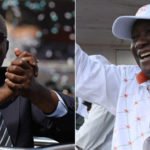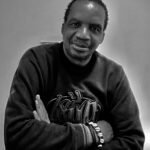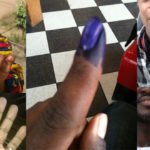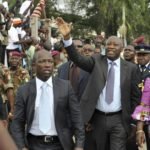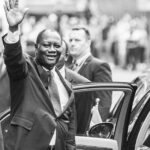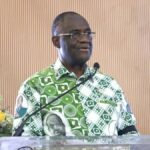Former South African President Thabo Mbeki arrived in Ivory Coast today to mediate in a political crisis sparked by a disputed election that has seen two rival leaders laying claim to the presidency.
Laurent Gbagbo, 65, was sworn in as president at a ceremony at the presidential palace yesterday after the Constitutional Council declared him the winner of Nov. 28 elections. Hours later, Alassane Ouattara said he had taken the oath of office, following a Dec. 2 announcement by the Electoral Commission that he won 54.1 percent of the vote.
Mbeki flew in to the commercial capital Abidjan earlier this morning, according to Alcide Djedje, Gbagbo’s diplomatic counselor, who is also Ivory Coast’s ambassador at the United Nations. “Meetings are scheduled today with both candidates,” Djedje said in a telephone interview.
The election was meant to unite the world’s top cocoa grower, which has been divided into a rebel-held north and government-controlled south since a 2002 uprising. The dispute over the results is escalating violence that left several dead during the campaign, with Ouattara supporters taking to the streets in protest.
The UN, United States and European Union have sided with Ouattara, while the leaders of the armed forces in the former French colony have backed the incumbent Gbagbo.
The African Union appointed Mbeki to lead an emergency mission to Ivory Coast “to facilitate the rapid and peaceful conclusion of the electoral process and the efforts to find a way out of the crisis.” Mbeki, who was ousted as South African president in 2008, led previous mediation efforts during the uprising and is currently spearheading efforts to bring an end to conflict in Sudan.
Appeal for Reason
“We trust the African Union and the international community,” Anne Ouloto, Ouattara’s spokeswoman, said in a telephone interview. “They can’t recognize Alassane Ouattara as the new president of Ivory Coast and negotiate with Laurent Gbagbo. We hope they are here to make Laurent Gbagbo see reason.”
Ouattara supporters used tables and pieces of wood to barricade streets and set car tires afire in the Abidjan suburb of Treichville yesterday. Police dressed in riot gear fired shots into the air to disperse the crowd and doused the fires with buckets of water.
Clashes between the rival camps have claimed the lives of 18 people in Abidjan alone since last night, Amadou Coulibaly, a spokesman for Ouattara’s party, said late yesterday.
“It’s going to be a rough ride in the Ivory Coast,” Kissy Agyeman-Togobo, a partner at Songhai Advisory LLP, which serves clients interested in Africa, said by telephone from London late yesterday. “There is a very, very real threat of conflict. I think it will be difficult for Gbagbo to hang on.”
Military Lockdown
The army has sealed off all the country’s borders until further notice, the military said in a statement read out on state television. Foreign television and radio signals have been jammed indefinitely, the National Broadcasting Council said in a separate statement.
Ivory Coast’s growth has averaged 1.1 percent in the eight years since the conflict started as the cocoa-dependent country missed out on the wave of foreign investment in Africa from nations such as China. Gbagbo’s supporters hold Ouattara, 68, responsible for the revolt in 2002, a charge he denies.
Cocoa for March delivery climbed $67, or 2.3 percent, to 2,935 pounds in New York yesterday after jumping 4 percent the day before.
To contact the editor responsible for this story: Antony Sguazzin at asguazzin@bloomberg.net.
Avec Bloomberg






